MDIFW Blog

Maine Loons vs. Winter: A Test of Timing and Resilience
Common loons face challenges of winter every year as ice closes in on Maine's inland waters.
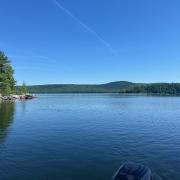
West Musquash Lake Changed Forever from Illegal Introduction of Bass
Learn how MDIFW fisheries biologists, game wardens, and the Passamaquoddy Tribe investigated and responded to a report of an invasive species in a native trout and salmon fishery
Advanced Warden School: Weeks 4-7
Weeks 4 - 7 of the Advanced Warden School focused on hunting, boating, trapping, medical training, and whitewater rafting.
Summer Bat Observations
Bat observations peak in the summer months. Learn why, and how to handle different types of bat encounters.
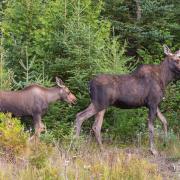
Moose Watching in Maine
With a population of 40-60,000 moose, Maine is home to the largest population in the lower 48 states and is an excellent place to see your first moose… if you’re willing to put the work in! Here are some moose watching tips from Maine's moose biologist.
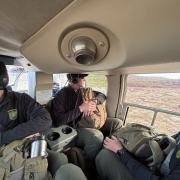
Advanced Warden School: Weeks 1-3
Maine Game Wardens undergo rigorous, comprehensive training before earning their badge. Follow along as the Advanced Warden School 2025 class completes training.
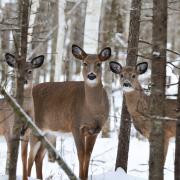
Funds from Antlerless Deer Permits Help Purchase and Manage over 10,000 Acres of Critical Habitat
Hunters help fund land acquisition – protecting important wildlife habitat for hundreds of species.

Stop the Spread: Protect Maine’s Waters
An aquatic invasive species is an unwelcome guest in our waters. Prevention is key. Maine's Lake and River Protection stickers help fund aquatic invasive species prevention, education, detection , and response.
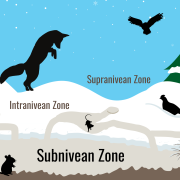
Spring Reveals Subnivean Secrets
The approach of spring brings a unique opportunity for any backyard naturalist to explore just how much wildlife activity has gone unnoticed throughout the winter. As the last of the snow melts away, watch as secret tunnels become exposed. It's a library of winter survival stories and a map of a special place called the subnivean zone.
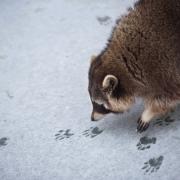
Tips for Tracks
Tracking wildlife in winter is like reading a compelling new novel. As animals travel across blank pages of fresh white snow their tracks become words, authoring new chapters every day in the memoir of their elusive lives.
Keep In Touch!
Enter your email or mobile number to receive the latest news from MDIFW.